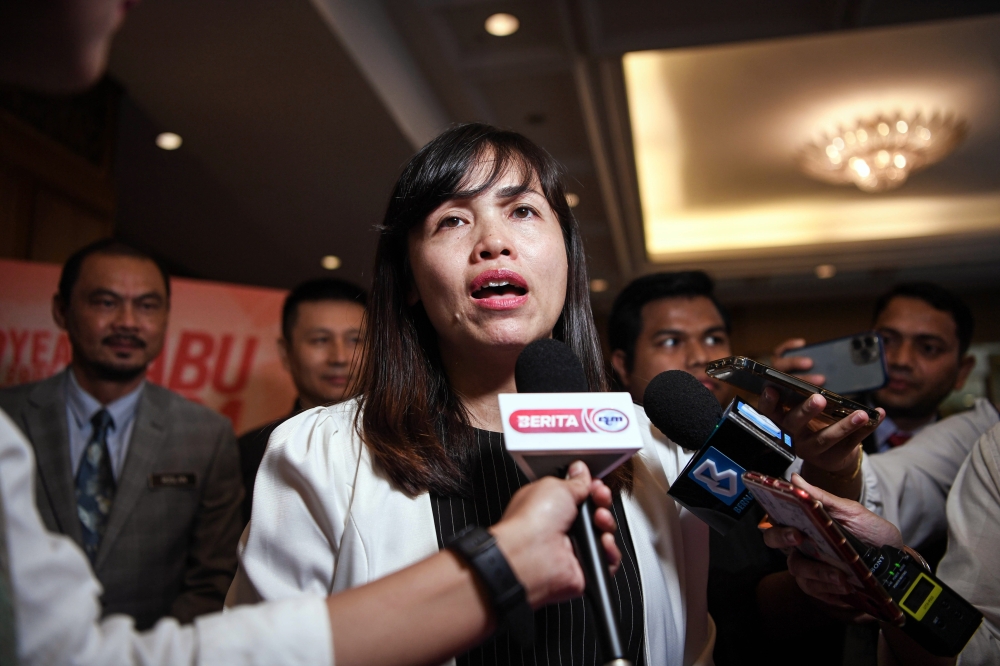KUALA LUMPUR, March 7 — The threat of scams featuring impersonations of well-known personalities is nothing new, but the government still warns the public to not fall for it. Deputy Communications Minister Teo Nie Ching just reminded Malaysians to be wary of good-to-be-true scams masquerading as advertisements on social media.
Scams are getting more sophisticated with generative AI content
She issued the reminder following the spread of an AI technology-edited video clip showing Prime Minister Datuk Seri Anwar Ibrahim discussing an investment scheme with lucrative returns.
“This is not the first time I have received complaints about videos of the Prime Minister being produced with AI for the purpose of investment scheme fraud. We should all be cautious,” she added later.
Teo said she had sent the relevant video link directly to Meta asking for the content to be removed from all its platforms. Additionally, she said that tech giants and social media providers such as TikTok and Google need to consider methods for alerting users if the content they are consuming is generated using AI technology, so they are not easily deceived.

There’s currently lacking the required laws and enforcement to hold social media platforms accountable for allowing the promotion of scam apps and content. Plus it is getting worse – in 2023 alone, over RM1 billion was lost to scams and scam ads according to PDRM.
Meta’s filtering algorithm is clearly not working
We’ve repeatedly covered Meta’s failure to prevent scam ads impersonating mainstream media, brands and public figures on its platform. Most if not all of the scams can be prevented if the company conducts basic pre-checks on the validity of the advertisers, especially first-time advertisers. Establishing a mandatory local advertisement moderation team to quickly filter and remove scam ads reported by Malaysian users is also a needed step by the social media platform owner.
It is clear that the screening algorithm does not work, and a human touch is needed to ensure scam ads do not pass through. For a company that makes multi-billion dollars in revenue just from advertising, it should be its responsibility to ensure all advertisements are legitimate before approval.
Malaysia’s soft stance against Meta and others is still puzzling
Even Fahmi Fadzil, the Minister of Communications himself was a victim of impersonation in one of the scam ads and it was also reported to the MCMC for further action. The regulatory agency has previously stated that it will be taking legal action against Facebook for the scam ads “as there is no sufficient cooperation from Meta”.
However, the Malaysian Government had backtracked on the move. At the time, Fahmi said he didn’t think MCMC’s legal action was necessary as the level of cooperation was very positive.
While MCMC is the regulatory body in Malaysia, it has stated before that it has limited power to act on social platforms that are based outside of Malaysia.
Even after multiple meetings with the social media platforms over the past year, it seems that Fahmi has yet to deliver any meaningful results to combat scams on social media platforms.
After over a year in the administration, it is time for the Communications Ministry to have a tougher stance against social media platforms that have clearly aided and abetted scams. Having tougher laws and policies will give Meta and other social media platforms a hard kick in the behind and compel them to properly do their due diligence and hold them accountable to ensure their ads comply with Malaysian laws or face a hefty fine if they do not obey.
Having tougher laws and policies will give Meta and other social media platforms a good, hard kick in the behind and compel them to properly do their due diligence. The platforms must be held accountable to ensure that all approved ads comply with Malaysian laws or face hefty fines for failure to comply.
Our Asean neighbours have also taken tougher steps to tackle the lackadaisical attitude of these social media platforms. Thailand has threatened to shut down Facebook as Meta has repeatedly failed to take serious action against scam ads on its platform.
Indonesia requires all digital platforms to register with the country’s Electronic Systems Provider list, which asks them to comply with urgent takedown requests for inappropriate content. Australia meanwhile is in an ongoing court proceeding against Meta for “publishing scam celebrity crypto ads on Facebook.” — SoyaCinca



















